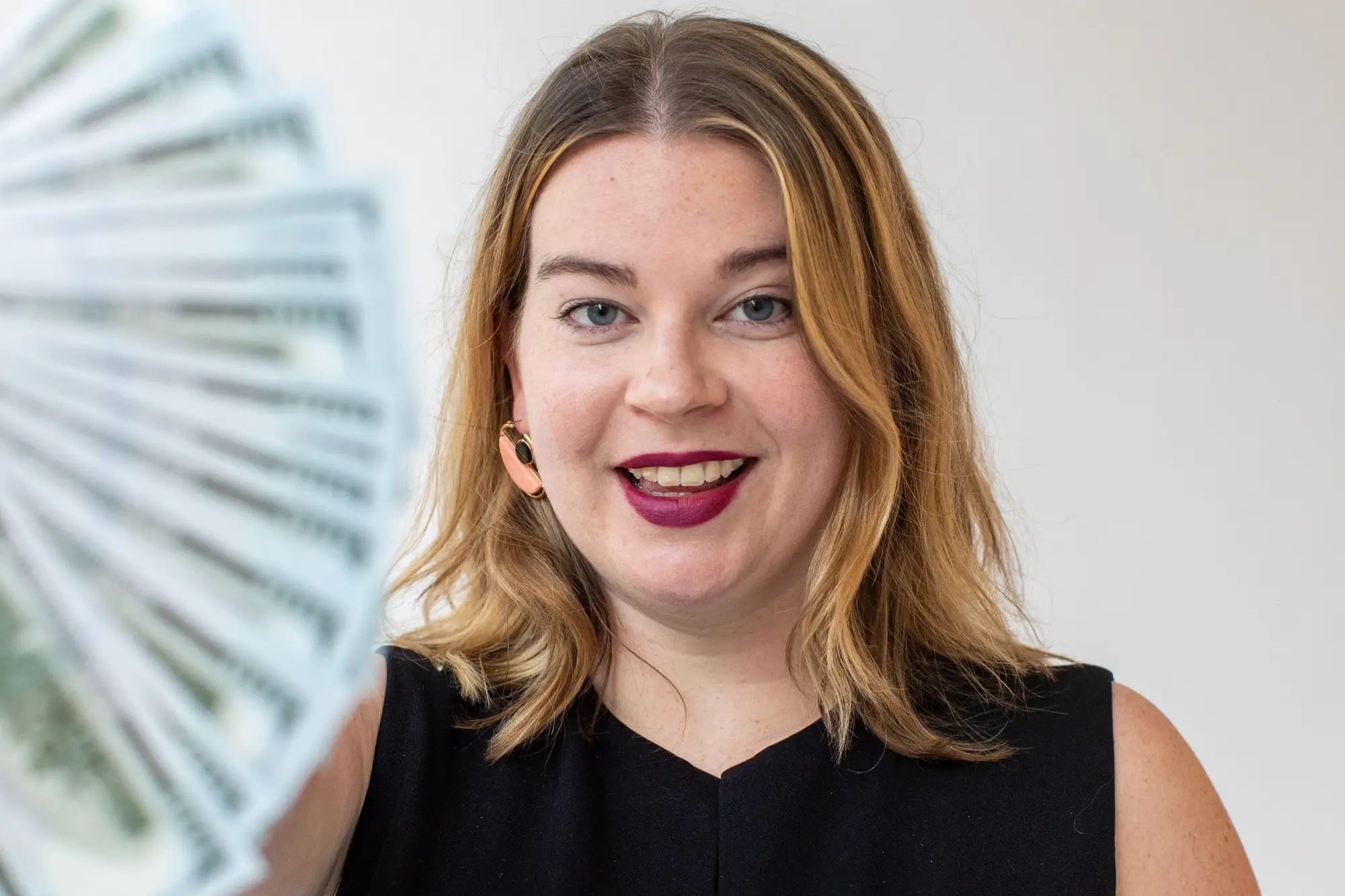I Started My Company With $40 and Grew It to $4 Million in Revenue. Here Are the Best Business Investments I Made and What Entrepreneurs Should Avoid.Tori Dunlap scaled her multimedia platform to also include a podcast, book, and more than 2 million social-media followers. Through her financial-advice platform, she shares her guidance for investing, saving money, and building a business.

- Tori Dunlap started her financial-advice blog with $40 and grew it to $4 million in revenue last year.
- Today she teaches customers how to invest, save money, and build startups of their own.
- She shares the most important investments for any business owner and what founders should avoid.
This article originally appeared onBusiness Insider.
Tori Dunlap started her business asside hustle in 2016 with just $40. Last year, her business booked $4 million in revenue.
Dunlap has scaled the multimedia platform Her First $100K to also include a podcast, book, and more than 2 million social-media followers. Through her financial-advice platform, Dunlap shares her guidance for investing, saving money, and building a business.
In a conversation with Insider, Dunlap shared the most important business investments she's made and what founders should avoid.This is an as-told-to story based on an interview with Dunlap. It has been edited for length and clarity.
Run a lean team, until you don't have to
I started the business with very little money, just $20 for the website and $20 for the domain. That low startup cost was crucial for the business, especially because it was a side hustle at first.
Sometimes new founders try to take on too many expenses at once, which can drain your finances. Whether it's purchasing brand-new equipment to launch or investing in too many ads before the business concept is proven, founders should keep it as lean as possible until their business is earning money.
Most of my investments were in the form of time and energy for the first few years.
People are the most important investment
While I started the business on my own, outsourcing tasks and bringing people onto the team was the best investment I ever made. In fact, the moment I could outsource, I did: I hired my first freelancer when the blog was still a side hustle.
They only worked around five hours a week and I couldn't pay them much because the business wasn't making a ton of money. But if I wanted it to grow beyond a side gig, I knew I needed the help.
The first tasks I outsourced were email marketing, graphic design, Instagram posting, and calendar management. I realized that anything I didn't have to physically be there for could be outsourced to save time and energy.
I get a lot of messages from other entrepreneurs asking how I was able to trust others to help me build my business. There are great people out there with many different skills and strengths, so I relinquished control because I realized I couldn't do everything alone.
If you can afford to hire somebody and you don't, you're actively holding your business back.
Investing in trends can be a waste of money
Dunlap invested in her podcast after her audience showed interest. Courtesy of Dunlap
Founders should remember their core business goals when making any financial decisions or investments. Decide your own priorities and determine your finances that way.
我经常看到创业者承担太多昂贵new ventures. For instance, it's very tempting to go all in on creative projects, like a podcast or a YouTube show. But make sure that whatever you're investing in will actually help you achieve those core goals.
It can be a waste of money if you're paying for something just because other business owners do.
So many people want to be entrepreneurs because they look up to other founders online. Social media can make it seem like you need to buy the latest equipment, tools, or products or invest in new branding or expensive marketing tactics. But founders should take a look at their books and determine if any money is being spent just to keep up with a trend or someone else's business model.
Instead, think about the long-term effects of how that new venture or product will make you money in return.











